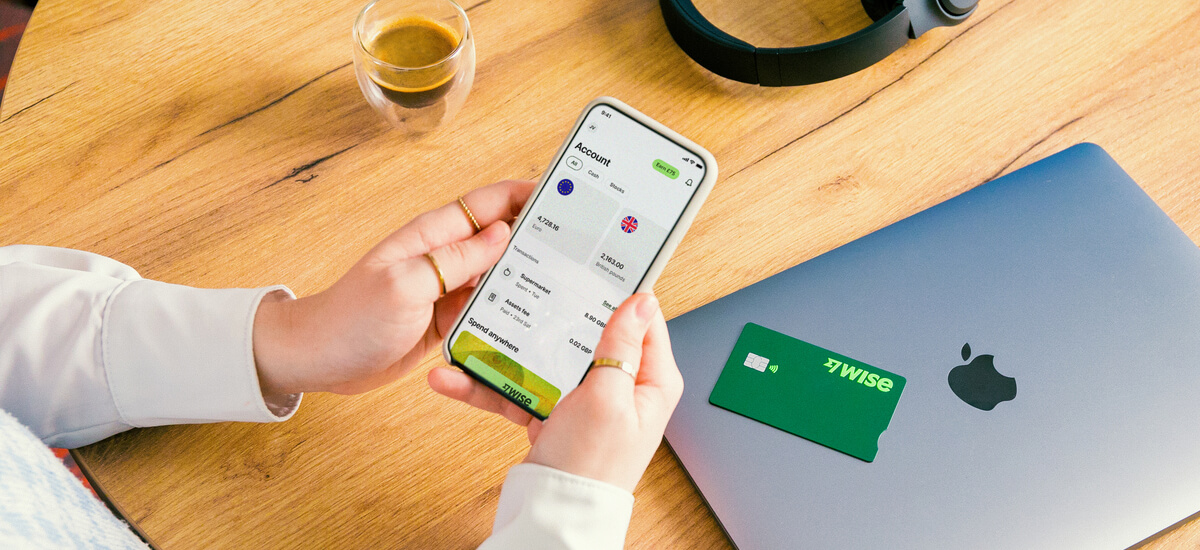How to Set Up Variable Direct Debit in the UK
Learn the relevant steps to set up variable direct debit for your customers in the UK.

If your company collects regular payments from its customers, you might want to consider taking direct debit payments.
There are many advantages of direct debits, for your customers as well as your business. We’ll cover these below, along with a step-by-step guide for setting up direct debits for your customers.
And if you need a cost-effective way to receive international payments, we will present you Wise Business multi-currency account, a cost-effective way to manage international finances and take payments in foreign currencies.
If you're a business sending more than 100,000 GBP (or equivalent) monthly across different currencies, get in touch with the Wise Business sales team to discuss the best solutions for your needs.
Talk with Wise Business Sales Team 🚀
Direct debit is a way to collect recurring payments directly from your customer's bank account after a one-time authorization process, the Direct Debit mandate.
It is commonly used for bills and subscriptions payments, due to its convenience while processing recurring payments. It is a great way to improve the account payable process for the customer.
The convenience of direct debit makes it a popular payment method, according to Bacs, it’s used by 90% of UK consumers to pay their bills¹.
Here’s what’s in it for your business:
- An efficient and manageable way to collect regular payments
- Cheaper than other payment methods
- Easier cash flow management, as you know and can control exactly when payments will clear into your account
- No more time wasted on reconciliation.
And for your customers, there’s the reassurance of an iron-cast Direct Debit Money Back Guarantee and a number of other safeguards. They can save time arranging payments, as the money will automatically be taken from their account.
It’s just easier and more convenient all round.
If you are convinced about the benefits of taking direct debit payments, we prepared a step-by-step to guide you through the process.
In order to accept direct debits, your business will need to access the Direct Debit scheme. In the UK, this is run by Bacs.
Unless you’re a large organisation which handles a huge number of payments everyday, the most suitable way for you to access the Direct Debit Scheme is as an ‘indirect submitter’². This is a term used to describe small businesses, charities and sole traders, who don’t submit payments directly to Bacs. Instead, they use an approved third party to handle the processing and management of direct debit payments for them.
Before you do anything else, contact your bank and let them know you’d like to join the Direct Debit Scheme. Your bank will check that you meet all the criteria, which may include things like your company’s administrative capability and financial situation. If you pass the checks, you’ll be accepted onto the Scheme.
You should also receive lots of helpful advice from your bank, such as information on the rules of the scheme and what facilities you’ll need.

With your bank onboard, the next step is to find the best way to submit your payment data to Bacs. If you have a very high number of payments to process, you can submit directly. But the most suitable option, especially for smaller businesses, is to become an indirect submitter.
You’ll need to choose a Bacs-approved bureau or a specialist payment service provider³. This includes direct debit companies such as FastPay, GoCardless, AccessPay and Worldpay.
If you’re using a bureau, you’ll need to get a Service User Number (SUN) from your bank².
If you opt for a payment service provider, you’ll need to compare pricing, software, ease of use and customer service to find the right fit for you. You may also want to look for additional features, such as integration with your accounting software.
Once you’re all set up with a bureau or payment processing service, it’s time to start collecting those payments. Before you can take a single penny from a customer via direct debit, you’ll need to get something called a Direct Debit mandate. This is also known as a Direct Debit Instruction (DDI).
This is an integral part of the Direct Debit Scheme. Once signed by a customer, the mandate essentially gives you permission to collect payments from their bank - provided you give the required advance notice. The DDI remains valid and payments will be collected until it is cancelled.
To get signed DDIs from your customers, you’ll need to use Bacs-approved online or paper forms. You can also use approved telephone scripts to get the required permission.
If you still have questions about the process to set up and start collecting direct debit payments check some frequently asked questions below.
In order to take direct debit payments from your customers you need to follow the process mentioned above, checking with your bank if you can receive direct debit payments, choosing your direct debit provider if you are a small business or setting up as a direct submitter, the last step is to collect the direct debit mandates from your customers.
The direct debit mandate - also known as Direct Debit Instruction (DDI) - is a one-time authorization your customer provides to your business in order to let you collect the payments directly from their bank account on the agreed schedule. The direct debit mandate stays valid until it is cancelled by one of the parts.
The cost of accepting direct debits depends on which third party you choose to collect and submit payments on your behalf. Some charge a monthly fee and have a transaction limit, while others charge per transaction only.
Here’s an idea of direct debit pricing from two of the major providers - GoCardless and FastPay.
GoCardless has a standard plan with no monthly fee, where you’ll pay 1% + £0.20 per transaction⁴.
At FastPay, you can choose a Pay as You Go plan and pay between £0.10 and £0.50 per transaction, or a flat rate of £49 a month for up to 100 direct debits⁵.
If you have suppliers in other countries, or would love to trade internationally in the future, it’s super handy to have a Wise Business account.

With this powerful multi-currency account, you can send payments to 160+ and set up direct debits for your international bills. You can hold 40+ currencies in your account at once and switch between them when you need to, always with the mid-market exchange rate.
Get started with Wise Business 🚀
So, there you have it - everything you need to know about setting up direct debits for your customers. It can seem a little complicated at first, but it should be smooth sailing once you get the initial setup out the way. Besides, it could be well worth it for hands-off, super efficient payment management that appeals to your customers.
Sources used for this article:
Sources checked on 22/05/2024.
*Please see terms of use and product availability for your region or visit Wise fees and pricing for the most up to date pricing and fee information.
This publication is provided for general information purposes and does not constitute legal, tax or other professional advice from Wise Payments Limited or its subsidiaries and its affiliates, and it is not intended as a substitute for obtaining advice from a financial advisor or any other professional.
We make no representations, warranties or guarantees, whether expressed or implied, that the content in the publication is accurate, complete or up to date.

Learn the relevant steps to set up variable direct debit for your customers in the UK.

Discover the benefits of setting up a separated business bank account to manage your business finances separated from your personal ones.

Discover the direct debit collection rules in place for UK business to collect payments at ease!

Providing customers with instant, transparent global payments has become crucial for delivering an exceptional customer experience and maintaining a...

Discover if expenses should be paid through payroll, with pros, cons and directions from HRMC.

Discover the best practices when setting up per diem expenses, how to set up rate, proceed with payment and more.